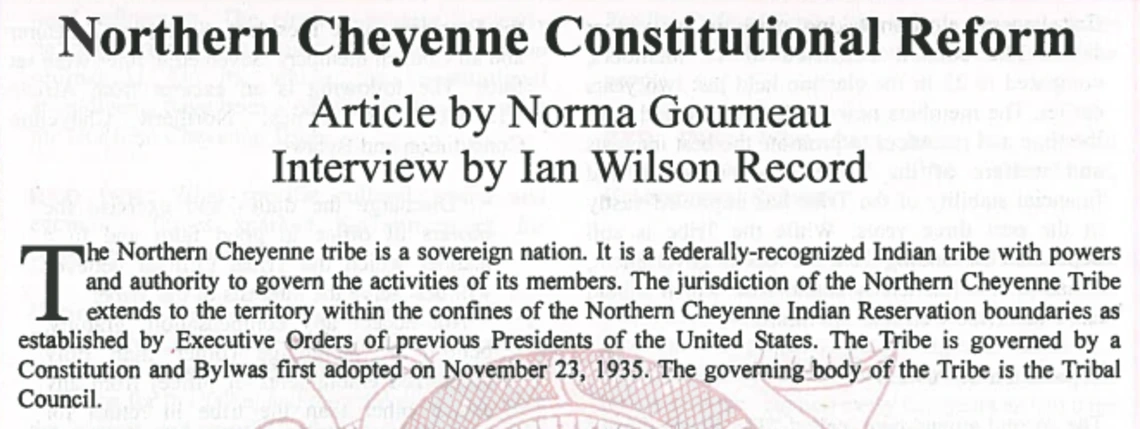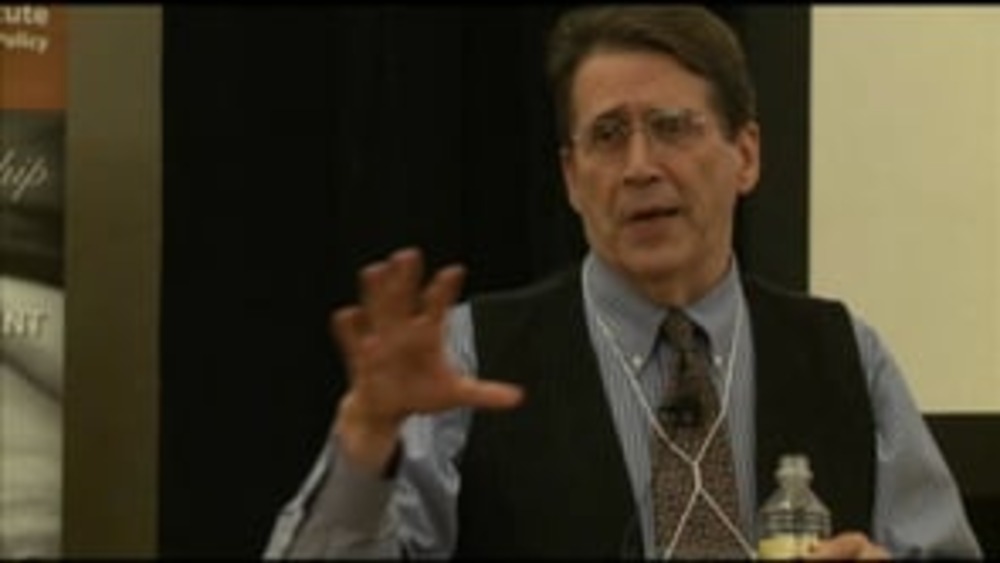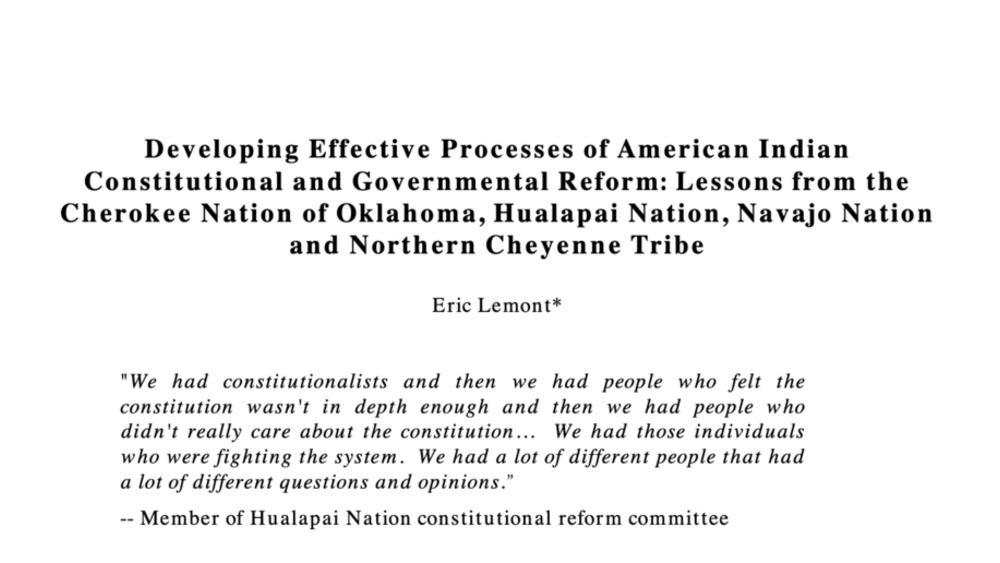The Northern Cheyenne Tribe is a sovereign nation. It is a federally-recognized Indian tribe with powers and authority to govern the activities of its members. The Tribe is governed by a Constitution and Bylaws first adopted on November 23, 1935. In the early 1990s, in order to meet the demands of the expanding population and economic growth of the Northern Cheyenne Tribe, the Tribal Council determined that its constitution needed to be amended. A Constitution Revision Committee was established to facilitate this process. The Committee was assigned the task of coming up with proposed constitutional amendments, hold public hearings and present their findings and recommendations to the Tribal Council. Finally, on May 10, 1996, a set of constitutional amendments was voted and adopted by the membership of the Northern Cheyenne Tribe. The amendments were divided into three parts: Governmental Reform, Separation of Powers, and Code of Ethics...
Additional Information
Gourneau, Norma, and Ian Record. "Northern Cheyenne Constitutional Reform." Red Ink: A Native American Student Publication. Vol. 8, No. 2. American Indian Studies Program, The University of Arizona. Tucson, Arizona. 2000: 63-66. Article.




